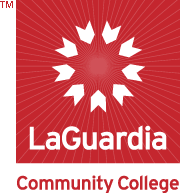Document Type
Assignment
Publication Date
3-2019
Abstract
This high-stakes assignment was designed within the frame of Learning Matters Mini-grants Capstone-First Year Seminar Collaboration (Spring 2018). It was used in Caron Knauer’s First Year Seminar class (LIF101) and in Habiba Boumlik’s Capstone Liberal Arts—Humanism, Science, and Technology (LIB200). For this collaborative assignment, the primary Core Competency is Integrative Learning and the Communication Ability is Written.
The following dimensions of the relevant core competency and communication ability align well with this collaborative assignment:
- Ability to draw insight from connections across relevant learning experiences, including personal, co-curricular, and academic-- what connections are there between culture, traditions and how gender is shaped?
- Ability to apply learning across diverse contexts by applying knowledge and skills inside or outside the classroom--attitudes towards gender in the Amazigh culture and how they connect to the students’ own culture.
- Communication ability--orally and in writing reflect on the newly acquired knowledge about gender and indigenous Amazigh people.
- Reflection and Self-Assessment: students demonstrate a developing sense of self as a learner, building on prior experience to respond to a new context offered to them through readings and film festival showings and discussions.
LaGuardia’s Core Competencies and Communication Abilities
The main objectives of the LIF assignment are:
- to involve students in co-curricular activities, an important component of the First Year Seminar. Students attend and report on the kickoff of a co-curricular college event, the New York Forum of Amazigh Film.
- to expose students to learning about a particular culture by first reading two articles about it and then being exposed to in-person, expert context and watching two films about which to write a film review. At the end of this first phase, First Year Students are connected and paired with LIB200 students close to graduating.
- to get feedback from the capstone class that enables LIF students to revise drafts and incorporate feedback.
The main objective of the LIB-LIF collaboration is:
- to give the LIB capstone students the opportunity to apply their knowledge and learning experiences outside their course by helping First Year Students improve their reflective and critical thinking skills along with their writing ability.
The LIF/LIB 200 collaborative aspect of the assignment unfolds following these steps:
- Provide information to LIF students about the liberal arts capstone class, LIB200, and ask LIF students to write questions to LIB students.
- Hand out letters from LIB 200 students to LIF students and have students write back.
- Let LIF students know that LIB students will be peer reviewing their research papers.
- Completing the peer review process.
Creative Commons License

This work is licensed under a Creative Commons Attribution-Noncommercial-Share Alike 4.0 License.



Comments
This resource is part of the Learning Matters Assignment Library.